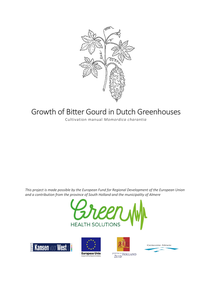IL22 is an important cytokine involved in the intestinal defense mechanisms against microbiome. By using ileum-derived organoids, we show that the expression of anti-microbial peptides (AMPs) and anti-viral peptides (AVPs) can be induced by IL22. In addition, we identified a bacterial and a viral route, both leading to IL22 production by T cells, but via different pathways. Bacterial products, such as LPS, induce enterocyte-secreted SAA1, which triggers the secretion of IL6 in fibroblasts, and subsequently IL22 in T cells. This IL22 induction can then be enhanced by macrophage-derived TNFα in two ways: by enhancing the responsiveness of T cells to IL6 and by increasing the expression of IL6 by fibroblasts. Viral infections of intestinal cells induce IFNβ1 and subsequently IL7. IFNβ1 can induce the expression of IL6 in fibroblasts and the combined activity of IL6 and IL7 can then induce IL22 expression in T cells. We also show that IL22 reduces the expression of viral entry receptors (e.g. ACE2, TMPRSS2, DPP4, CD46 and TNFRSF14), increases the expression of anti-viral proteins (e.g. RSAD2, AOS, ISG20 and Mx1) and, consequently, reduces the viral infection of neighboring cells. Overall, our data indicates that IL22 contributes to the innate responses against both bacteria and viruses.
DOCUMENT

Bitter gourd is also called sopropo, balsam-pear, karela or bitter melon and is a member of the cucumber family (Cucurbitaceae). It is a monoecious, annual, fast-growing and herbaceous creeping plant. The wrinkled fruit of the bitter gourd is consumed as a vegetable and medicine in Asia, East Africa, South America and India. The aim of this bitter gourd cultivation manual is to make this cultivation accessible to Dutch growers and in this way be able to meet market demand. In addition, this cultivation manual aims to provide insight into the standardized production of the medicinal ingredients in the fruit.
DOCUMENT

Wat is er op dit moment (medio augustus 2020) in de wetenschappelijke literatuur bekend over (de effecten van maatregelen tegen) de verspreiding van het coronavirus en wat is de betekenis daarvan voor organisatoren van evenementen?
DOCUMENT

Background and aims: Observational data indicate that diets rich in fruits and vegetables have a positive effect on inflammatory status, improve metabolic resilience and may protect against the development of non-communicable diseases. Nevertheless, experimental evidence demonstrating a causal relationship between nutrient intake (especially whole foods) and changes in metabolic health is scarce. This study investigated the pleiotropic effects of sulforaphane from broccoli sprouts, compared to pea sprouts, on biomarkers of endothelial function, inflammation and metabolic stress in healthy participants subjected to a standardized caloric challenge.Methods: In this double-blind, crossover, randomized, placebo-controlled trial 12 healthy participants were administered 16 g broccoli sprouts, or pea sprouts (placebo) followed by the standardized high-caloric drink PhenFlex given to disturb healthy homeostasis. Levels of inflammatory biomarkers and metabolic parameters were measured in plasma before and 2 h after the caloric overload.Results: Administration of broccoli sprouts promoted an increase in levels of CCL-2 induced by caloric load (p = 0.017). Other biomarkers (sICAM-1, sVCAM-1, hs-CRP, and IL-10) individually showed insignificant tendencies toward increase with administration of sulforaphane. Combining all studied biomarkers into the systemic low-grade inflammation score further confirmed upregulation of the inflammatory activity (p = 0.087) after sulforaphane. No significant effects on biomarkers of metabolic stress were detected.Conclusion: This study has demonstrated that sulforaphane facilitated development of a mild pro-inflammatory state during the caloric challenge, which could be suggestive of the onset of the hormetic response induced by this phytonutrient. The use of integrative outcomes measures such as the systemic low-grade inflammation score can be viewed as a more robust approach to study the subtle and pleiotropic effects of phytonutrients.Clinical trial registration:www.clinicaltrials.gov, identifier NCT05146804.Keywords: biomarkers; diet; glucoraphanin; hormesis; inflammation; nutrients; phenotypic flexibility; sulforaphane.
DOCUMENT

What is known in scientific literature at this point in time about the effects of the measures against the transmission of the coronavirus and what is the meaning of this for the organisers of events?
DOCUMENT
